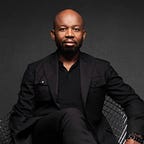Age versus Success - a Nigerian Tale
I recently attended the 25th Nigeria Economic Summit - the mission of the event this year was to, “set a new agenda for Nigeria in the Fourth Industrial Revolution; and that marks a critical strategic shift to a competitive private sector economy by 2050”.
Our President, His Excellency Muhammadu Buhari, gave the keynote, and the two-day programme was essentially a who’s who of industry titans for Nigeria. Dangote, the Emir of Kano and my own father, PGD, were part of the proceedings. These are people who have literally built Nigeria.
However, one of the panels that struck me in particular was one focussed on Under 40s; Leadership in 2050: Insights from Tomorrow’s Leaders. Throughout the session, my ears pricked up, and in fact, I shuddered each and every time I heard, “you young ones have done really, really well so far”. Imagine having your accomplishments diminished so breezily? Imagine, in your late thirties, being referred to as a youngster, after you’ve grown your business in a competitive environment? Why do older Nigerians feel the need to make the distinction between age and success?
France’s President Macron is 41 years old. He became President of his country at 39 years old. Would we refer to him as a “youngster” and commend him on his achievements to-date, in such a patronising way? The man is a statesman.
